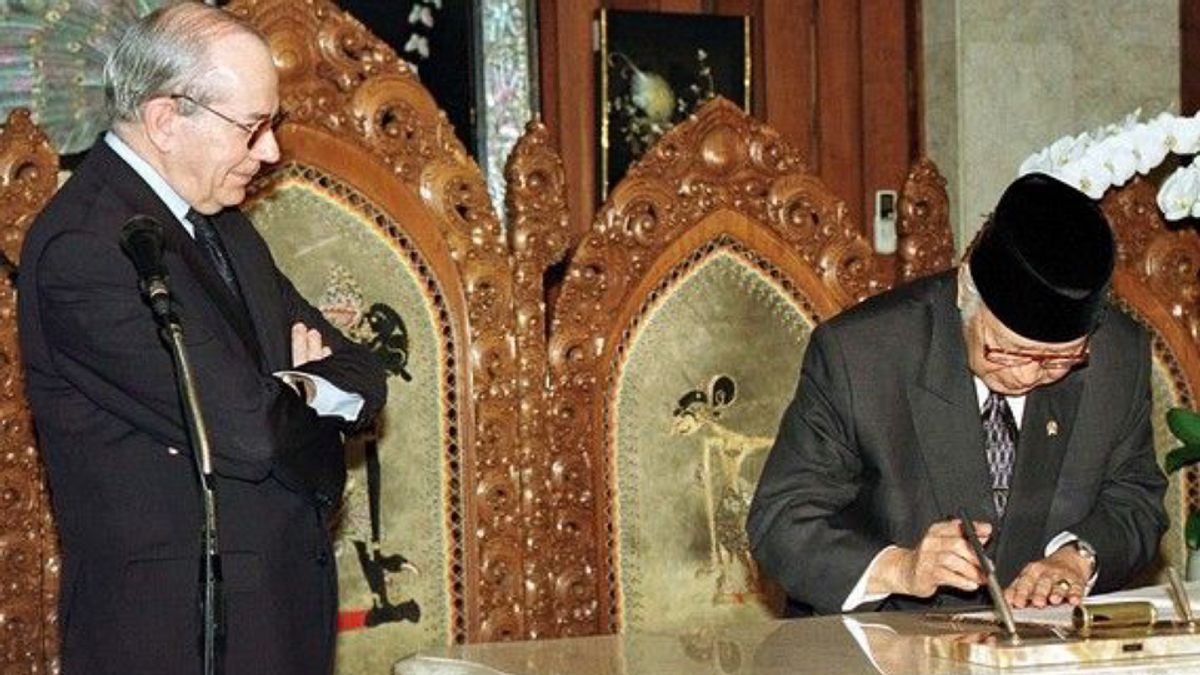JAKARTA - Indonesian Center of Reform on Economics (CORE) Economic Observer Yusuf Rendy Manilet said that the financial assistance that Indonesia received from the IMF through the Special Drawing Rights (SDR) scheme this time was not a debt.
He realized that some Indonesians might have had a bad experience with the IMF in the late 90s, especially when it comes to financial support.
“Yes, I think when talking about the SDR and the IMF, the Indonesian people especially those who observed and felt the crisis from 1997-1998 would immediately think about loans or debts given to Indonesia. However, I think the conditions this time are a bit different from that time," he told VOI, Wednesday, September 8.
According to Rendy, the DSR from the hook was given not because of a request for assistance from the Indonesian government but an initiative from the IMF itself.
"This is to support global liquidity to face the need for foreign exchange reserves, strengthen market confidence, and encourage global economic resilience and stability against the COVID-19 pandemic," he said.
Rendy's assumption is based on data which states that the amount of Indonesia's foreign exchange reserves is still in a fairly qualified condition.
“Before the SDR was given, actually, if we look at the position of foreign exchange reserves in the country, it is still relatively sufficient. Figures in the buli show that foreign exchange reserves at that time were still sufficient for import financing and debt financing for up to 8.9 and 8.6 months into the future. This capability is above international standards, which reach a minimum of 3 months of financing,” he explained.
Rendy added that another thing that is quite encouraging is that Indonesia's economic performance is on the right track of recovery. This evidence can be seen from a number of macro indicators that continued to advance until the first half of this year.
"The condition of the trade balance is also still recording a trend of continuous improvement in performance until the first semester of 2021," he said.
For information, Bank Indonesia (BI) reported that foreign exchange reserves at the end of August 2021 were recorded at US$144.8 billion. The book increased compared to the position at the end of July 2021 of 137.3 billion US dollars.
"The increase in the position of foreign exchange reserves in August 2021 was mainly due to the additional allocation of Special Drawing Rights (SDR) of 4.46 billion SDR, equivalent to 6.31 billion US dollars received by Indonesia from the IMF," said Head of the BI Communications Department Erwin Haryono at press release Monday, September 6.
The English, Chinese, Japanese, Arabic, and French versions are automatically generated by the AI. So there may still be inaccuracies in translating, please always see Indonesian as our main language. (system supported by DigitalSiber.id)













